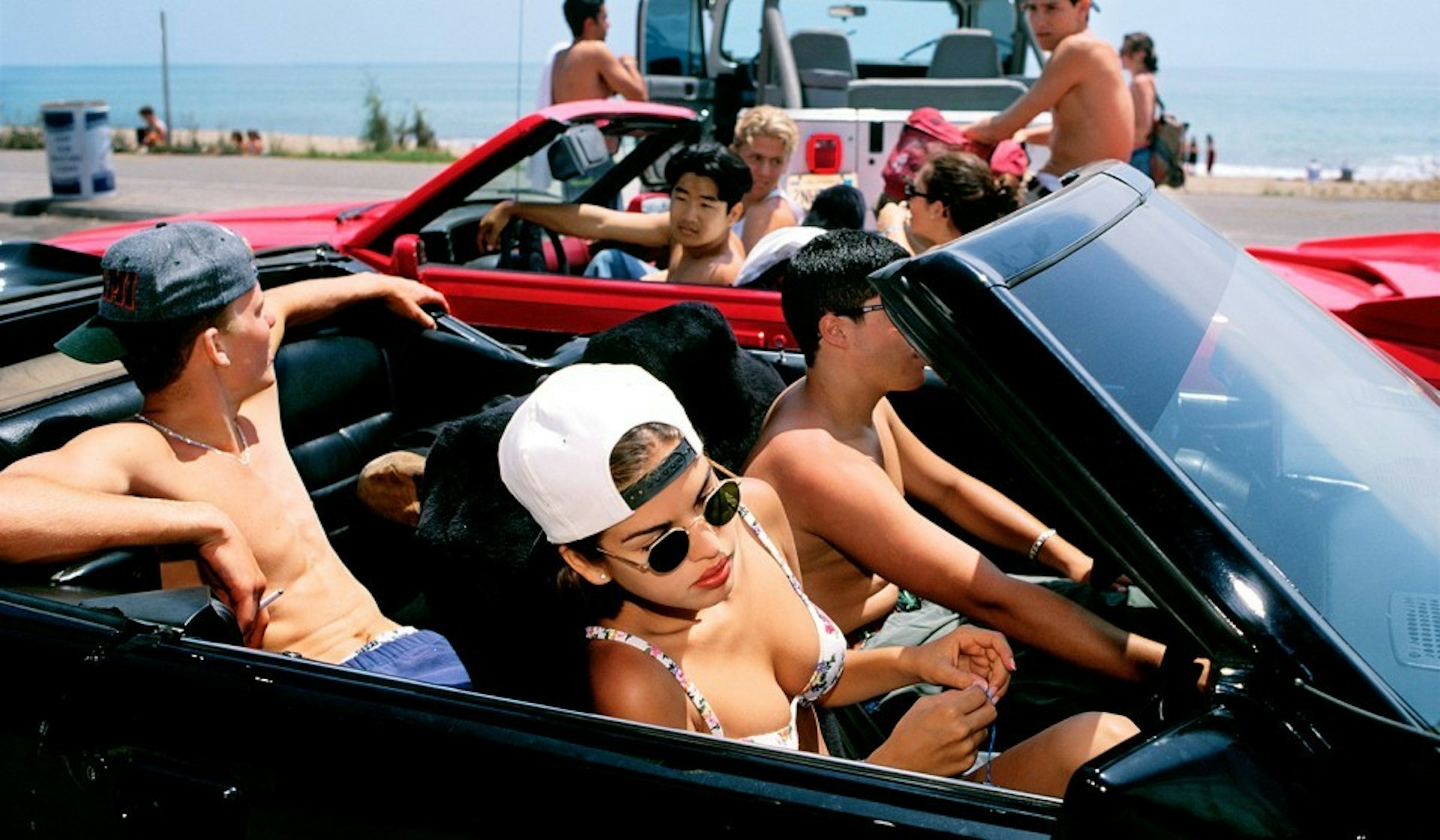
Six of the best docs you might have missed this year
- Text by Thomas Curry
- Photography by Generation Wealth
Throughout 2018 we’ve seen widening social divides as our beliefs become more entrenched, and the stories we see become increasingly tailored to our interests. While some journalistic institutions have been attacked for the way they seek to challenge authority, others have begun to thrive in a new age of misinformation. In the midst of it all, a host of insightful and necessary documentaries have catalogued these changes, working to inform viewers about the changing status quo whilst simultaneously providing a platform for marginalised communities to raise their voice above the din. As the year draws to a close we’ve shortlisted some of our favourites, covering everything from radicalisation and identity to investigative reporting.
Dark Money
Across the US, anonymous, obscurely named 501(c)(4)s are reshaping local and national politics through strategic, well-financed influence campaigns. In most cases, the public have no idea who is financing this political activity, what their motives are, or who they’re working with. And it’s not just America. Reporting from the BBC suggests that UK-based lobbying groups are working to influence government policy, most recently in support of Vote Leave, with no indication as to who their backers might be, or what their motives are.
On both sides of the pond ‘dark money’ is reshaping our politics with greater speed and efficiency than fake news or state-sponsored cyber attacks. With thoughtfulness, clarity and a meaningful sense of urgency, Kimberley Reed’s Sundance Grand Jury-nominated Dark Money begins by looking at how dark money groups have influenced the politics of her home state of Montana, before zooming out to consider the macro effects of unbridled campaign donations on the US government as a whole. Dark Money is a gripping and essential watch that posits the frightening possibility that House Of Cards might not be quite as removed from reality as we would like.
Three Identical Strangers
Directed by Tim Wardle, Three Identical Strangers tells the astonishing story of three men who, at the age of 19, discover that they are identical triplets who have been separated at birth. The trio’s joyous reunion in 1980 catapults them to fame, but it also sets in motion a chain of events that unearths a disturbing secret – one that might one day answer key questions at the heart of all human behaviour. Equal parts conspiracy thriller, family drama and philosophical mind-bender, the film explores questions of free will, nature vs nurture, family, and how we understand identity.
Of Fathers & Sons
Posing as an extremist, Syrian-born filmmaker Talal Derki spent more than two years living with a Jihadi family for his Sundance-winning documentary Of Fathers And Sons. The end result is a thoughtful, nuanced and profoundly shocking portrait of what life is like for those living in an Islamic caliphate. It’s a world so rarely seen – except through political dog-whistles and sensational headlines – and Derki pulls back the curtain with unflinching honesty. Framing domestic intimacy with scenes in which mines are disarmed, beheadings are discussed and children no older than nine or 10 are taught to fire assault weapons, the end result is a film that is both eye-opening and deeply human.
Generation Wealth
Sundance and Emmy award-winning filmmaker/photographer, Lauren Greenfield, has spent the last 25 years documenting the impact of consumerism on youth, gender, body image and our wider social mores. Her latest feature, Generation Wealth, examines extremes of wealth and addiction through a series of intimate portraits filmed around the world. With clarity, humour and self-reflective insight, Greenfield holds her subjects up as a mirror to our own desires, forcing viewers to acknowledge our shared participation in a consumer culture that’s always striving for more.
Hale County This Morning, This Evening
An intimate portrait of a place and its people, Hale County This Morning, This Evening looks at the lives of Daniel Collins and Quincy Bryant, two young African American men from rural Hale County, Alabama, over the course of five years. Collins attends college in search of opportunity while Bryant becomes a father to an energetic son in an open-ended, poetic form that privileges the patiently observed interstices of their lives. In his directorial debut, award-winning photographer and director RaMell Ross offers a refreshingly direct approach to documentary that examines the social constructions of race, while simultaneously offering a testament to dreaming despite the odds.
The Cleaners
When you post something on the internet, who decides whether it stays or goes? What counts as inappropriate content? And how is it removed once it’s been labelled offensive or explicit? Through interviews with five digital scrubbers, The Cleaners tells the story of just some of the thousands of workers whose job it is to delete ‘inappropriate’ content from the web. Outsourced by Silicon Valley, these contractors review and rate thousands of often deeply disturbing images and videos each day with lasting psychological effects. Beginning as a touching personal portrait of those struggling to meet the demands of the connected world, The Cleaners explores questions about what makes an image art, or propaganda, or journalism, and how social media’s hope for a global community malformed into a tangle of fake news and radicalisation.
Follow Thomas Curry on Twitter.
Enjoyed this article? Like Huck on Facebook or follow us on Twitter.
